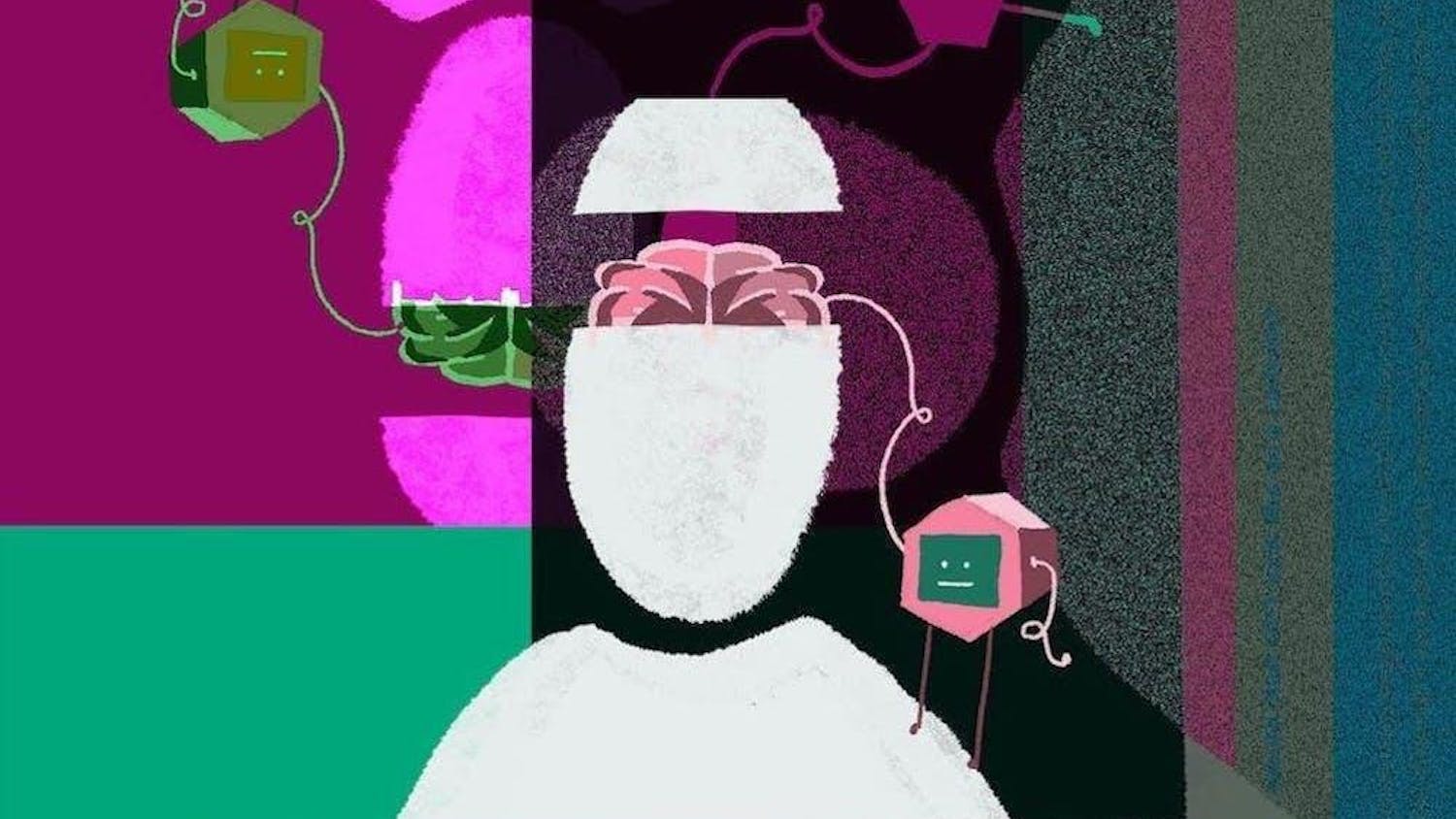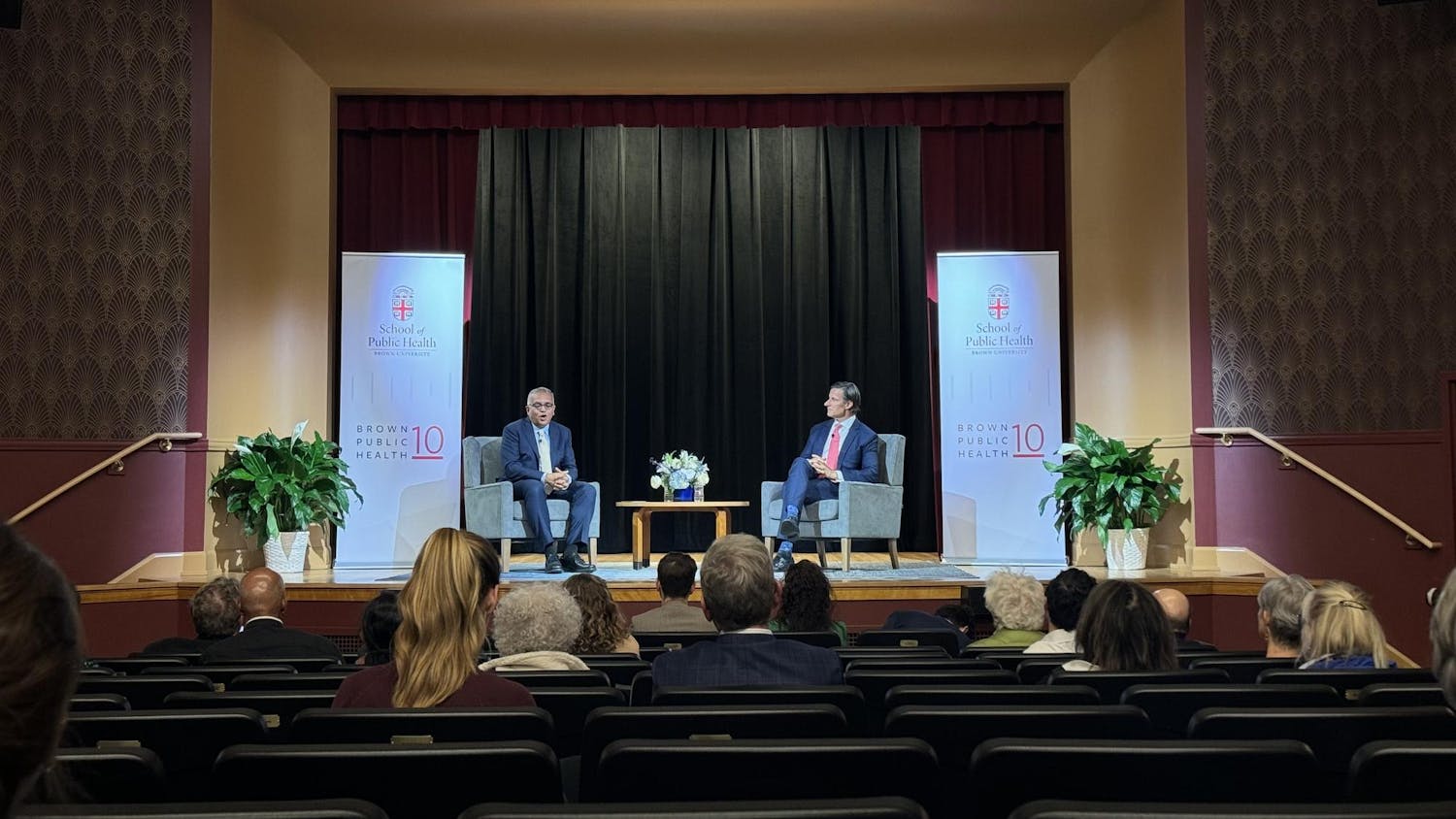“We are not the leaders of tomorrow, we are the leaders of now,” Samson Njolomole, external relations manager for Partners in Health, told his audience of about 50 Saturday. The talk, sponsored by Brown’s chapter of PIH, focused on bringing health care to Malawi, the country in southeast Africa where Njolomole grew up.
Speaking on behalf of PIH, a nonprofit organization that builds hospitals and advocates for broader access to health care globally, Njolomole began his lecture with an anecdote about the organization’s presence in Malawi, specifically the Neno district, also discussing how he rose to his current position.
While working away from home, he got so sick that people began reporting to his mother that he had died, he said. To prove to her that he was still alive, Njolomole returned to his hometown, where his father convinced him to get tested for HIV. When the results came back, he discovered he was HIV positive.
“The stigma that comes along when you’re HIV positive is so bad that it creates barriers to get health care access,” Njolomole said, adding that it was one reason he resisted getting tested for so long. PIH considers the effect of such stigmas when providing health care, Njolomole said.
“PIH believes that to treat a person with an infection takes more than the drugs, it takes finding out the challenges that they are facing,” he said.
In Malawi, the main health care challenge the country faces is access, Njolomole said. Malawi is a rural country, with the majority of its residents living in the countryside. To access a hospital or health care center, some people in need have to walk between three to five hours, he said.
The poor road conditions and lack of ambulances further impede efforts to increase access to medical treatment, Njolomole added.
“The transport system is very critical,” he said. “We sometimes have women who are on maternity who need to be transported in the middle of the night.”
Getting qualified staff members to treat patients and securing access to medicine are other obstacles PIH tries to tackle. In Malawi, people will not go to the hospitals to get treated because they associate the hospitals with death, Njolomole added. “It’s not just the hospital — it is about the provision of care. All the components need to be there,” he said.
Women’s health is a particular focus for PIH, and Brown’s chapter of PIH specializes in addressing Malawi women’s health care needs. Women face not just the challenges of giving birth in understaffed hospitals — many must also choose between caring for their families or themselves when they fall ill, Njolomole said.
Some husbands leave their wives when they find out their wives are HIV positive, he said. Other women are plagued with so many other problems that finding the time and money to focus on improving their health falls to the wayside. “The house is falling apart, she can’t feed the children, when is there time to take her medication?” Njolomole said.
PIH is working to “go beyond the basic needs” of people and establish sustainable ways for them to access health care, Njolomole said. One way they are ensuring more people seek health care is by appointing them Village Health Workers — liaisons who accompany patients to hospitals and follow up with them to ensure they take their medications.
“It’s not a question of saying ‘Hey, go to that hospital,’” Njolomole said. “It’s a question of saying ‘Hey, I understand the pain you are going through, and I’m going to walk all the way to the hospital with you.’”
PIH has made great strides in Malawi, but there is much more that can be done, he said. The three most important actions people can take are fundraising, educating and advocating, he added.
Njolomole brings a unique and valuable perspective to the University, said Victoria Leonard ’15, one of the PIH chapter leaders at Brown. “At Brown, I think we have a lot of opportunities to learn about global health from the expert, from sort of a bird’s-eye view perspective,” she said. “But very rarely do we have the perspective from on the ground, and what that looks like.”
Audience members said they found Njolomole’s lecture engaging and influential. “It was empowering to see the impact he’s had in such a small country but on such a large scale,” Jaime Ramirez ’16 said. “It was just very powerful.”
If Njolomole could have people take one thing away from his lecture, it would be “promoting access and social justice,” he told The Herald. “It starts from just recognizing that there’s a challenge, and helping …to bring some change.”
ADVERTISEMENT




